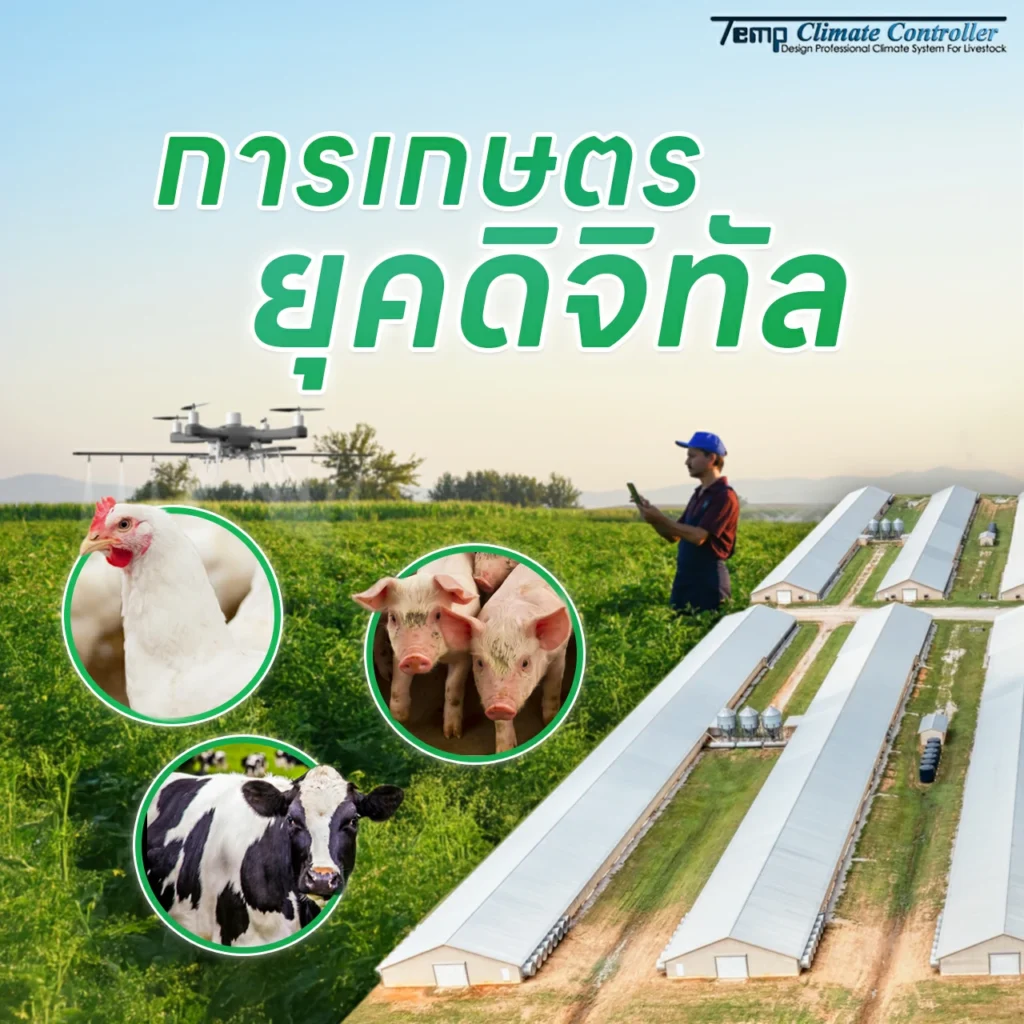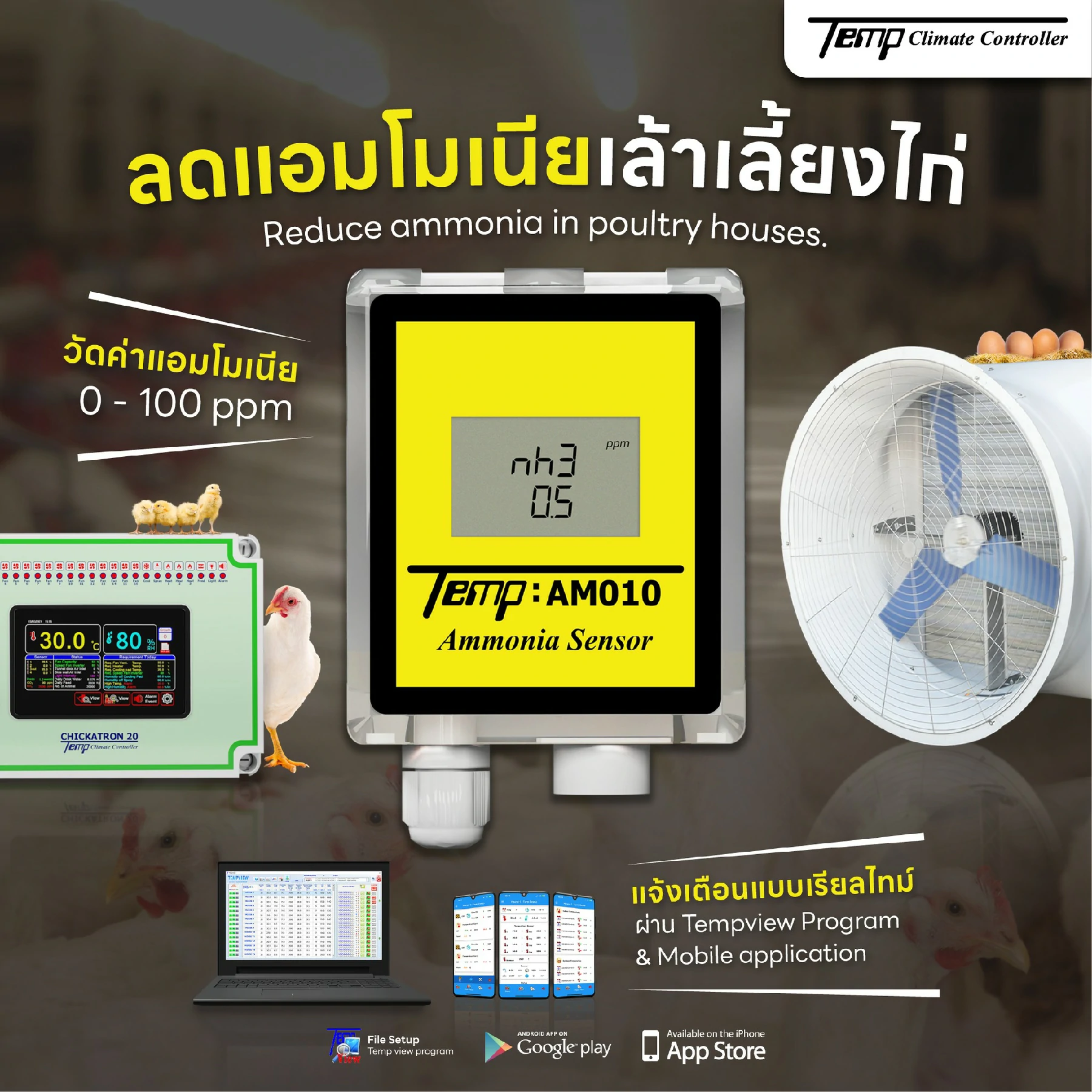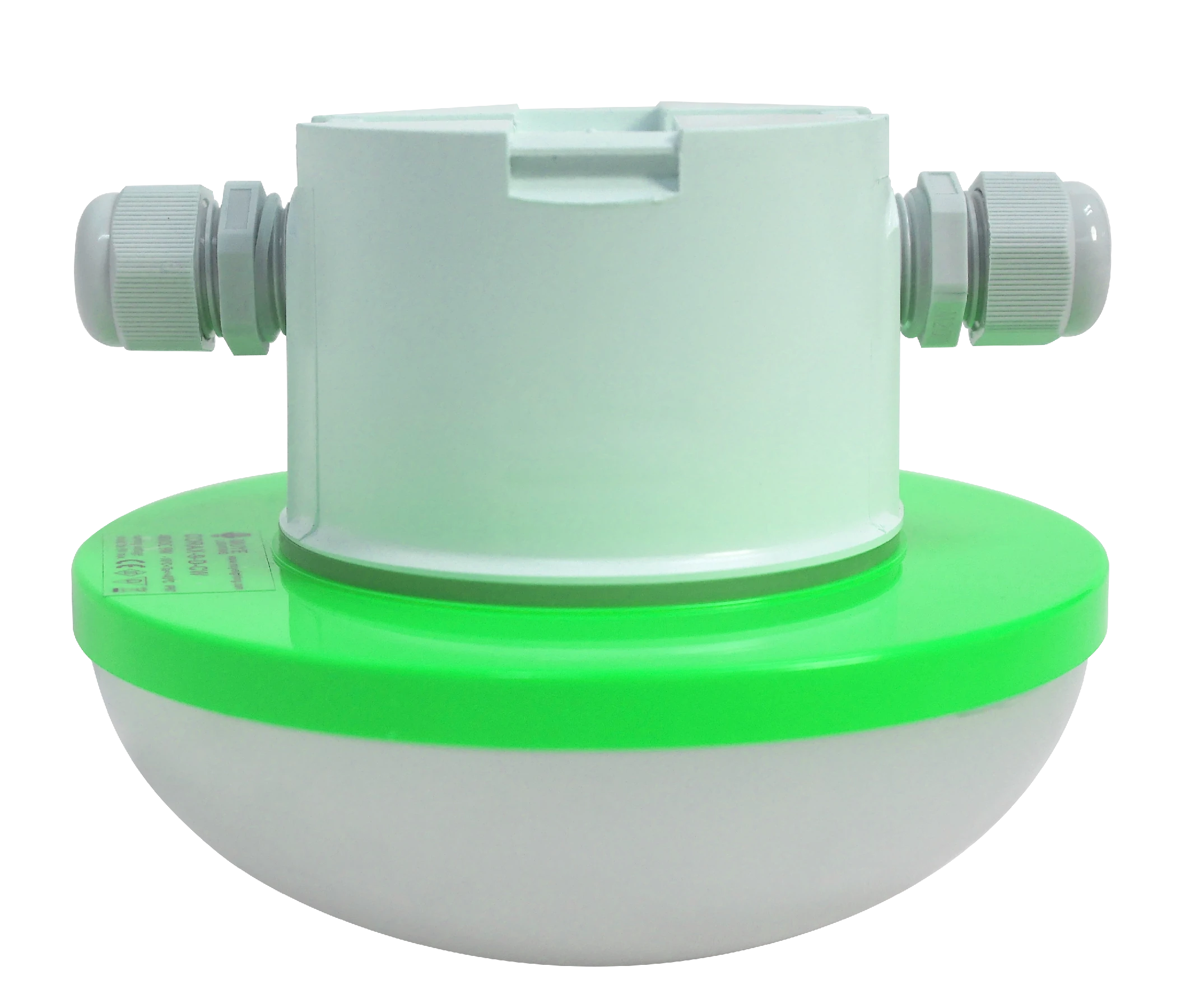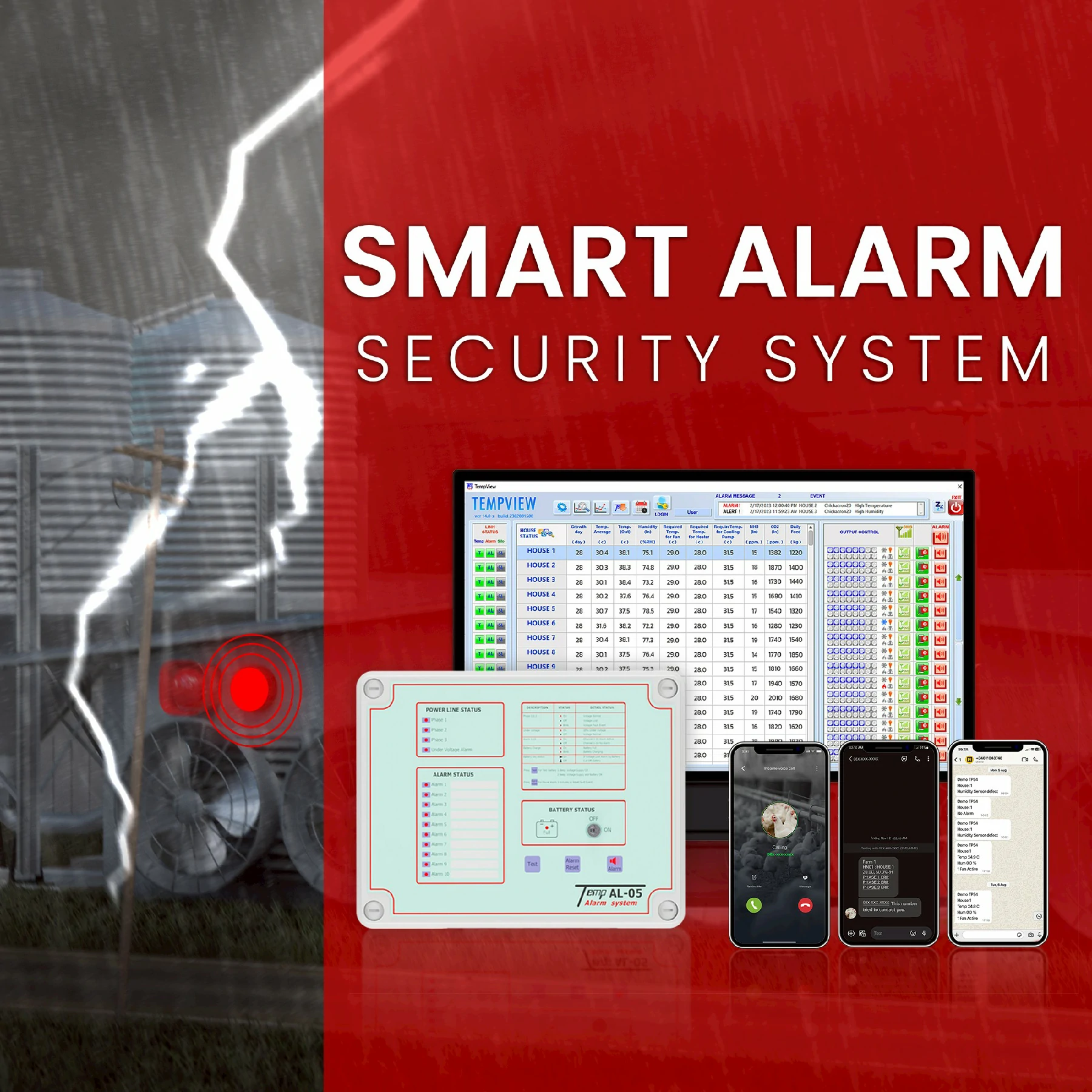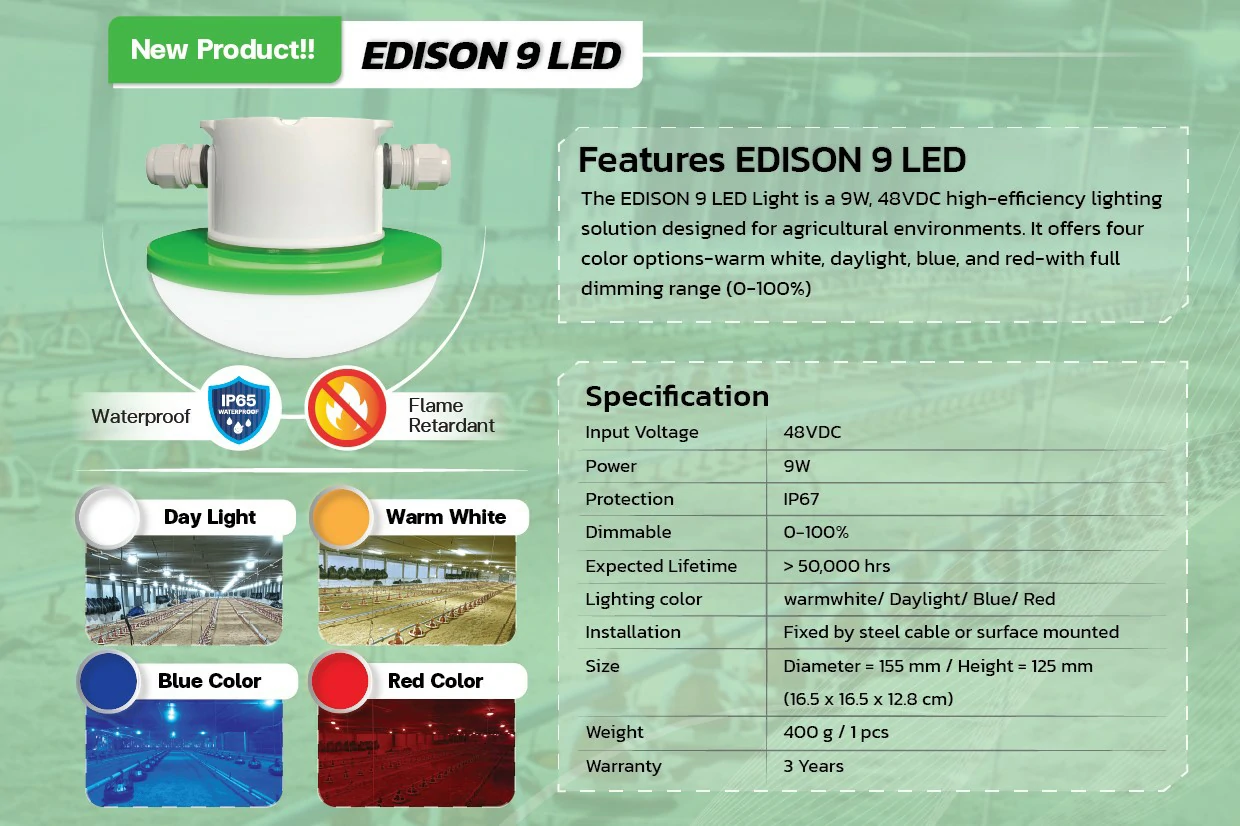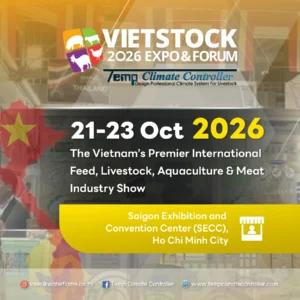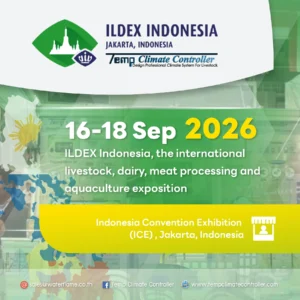Smart Farming The Future of Efficient Agriculture
Traditional farming has long relied on farmers’ experience and observation. Today, however, agriculture is entering a new era Smart Farming, which leverages digital technology and data-driven insights as the core of decision-making to increase yields, reduce costs, and promote sustainability.
Smart Farming covers both crop production and livestock farming from soil, water, and fertilizer management, to monitoring plant and animal health, harvesting, and even marketing.
Key Components of Smart Farming
Internet of Things (IoT) and Sensors
Monitor soil moisture, temperature, humidity, and animal health.
Provide real-time data for accurate decision-making.
Big Data & AI Analytics
Process large-scale data such as rainfall patterns and crop growth.
Help farmers plan planting cycles or livestock feeding more efficiently.
Drones and Satellite Imaging
Survey farmland, monitor crop health, and detect pests.
Minimize damage and improve precision management.
Automation Systems
Automatic harvesting machines, real-time irrigation, and livestock feeding systems.
Reduce labor demand, minimize errors, and boost efficiency.
Benefits of Smart Farming
Higher yields Optimize input usage and reduce losses.
Lower costs Maximize resource efficiency in water, fertilizer, and labor.
Reduced risks Analyze and forecast potential issues in advance.
Environmental sustainability: Limit excessive chemical use and reduce ecological impact.
Smart Farming in Closed Livestock Systems
In livestock farming, Smart Farming technologies allow farmers to precisely control environmental conditions and animal health—such as temperature, humidity, and ventilation directly impacting growth rates and overall well-being.
One notable solution is the Temp Climate Controller, designed specifically for poultry farms. It enables
Automated climate control inside poultry houses.
Real-time monitoring of temperature and humidity with automatic ventilation adjustment.
Reduced energy costs and improved livestock productivity.
An optimized environment for animal growth.
Smart Farming in Action
Smart Farming is not just a concept it’s a practical approach that integrates technology and data into traditional farming. By implementing solutions like the Temp Climate Controller, poultry farms can truly transform into smart, efficient, and sustainable farms of the future.
🔖 #SmartFarming #TempClimateController #Farm #Temp #SustainableAgriculture
Smart Farming The Future of Efficient Agriculture
Traditional farming has long relied on farmers’ experience and observation. Today, however, agriculture is entering a new era Smart Farming, which leverages digital technology and data-driven insights as the core of decision-making to increase yields, reduce costs, and promote sustainability.
Smart Farming covers both crop production and livestock farming from soil, water, and fertilizer management, to monitoring plant and animal health, harvesting, and even marketing.
Key Components of Smart Farming
Internet of Things (IoT) and Sensors
Monitor soil moisture, temperature, humidity, and animal health.
Provide real-time data for accurate decision-making.
Big Data & AI Analytics
Process large-scale data such as rainfall patterns and crop growth.
Help farmers plan planting cycles or livestock feeding more efficiently.
Drones and Satellite Imaging
Survey farmland, monitor crop health, and detect pests.
Minimize damage and improve precision management.
Automation Systems
Automatic harvesting machines, real-time irrigation, and livestock feeding systems.
Reduce labor demand, minimize errors, and boost efficiency.
Benefits of Smart Farming
Higher yields Optimize input usage and reduce losses.
Lower costs Maximize resource efficiency in water, fertilizer, and labor.
Reduced risks Analyze and forecast potential issues in advance.
Environmental sustainability: Limit excessive chemical use and reduce ecological impact.
Smart Farming in Closed Livestock Systems
In livestock farming, Smart Farming technologies allow farmers to precisely control environmental conditions and animal health—such as temperature, humidity, and ventilation directly impacting growth rates and overall well-being.
One notable solution is the Temp Climate Controller, designed specifically for poultry farms. It enables
Automated climate control inside poultry houses.
Real-time monitoring of temperature and humidity with automatic ventilation adjustment.
Reduced energy costs and improved livestock productivity.
An optimized environment for animal growth.
Smart Farming in Action
Smart Farming is not just a concept it’s a practical approach that integrates technology and data into traditional farming. By implementing solutions like the Temp Climate Controller, poultry farms can truly transform into smart, efficient, and sustainable farms of the future.
🔖 #SmartFarming #TempClimateController #Farm #Temp #SustainableAgriculture
Smart Farming The Future of Efficient Agriculture
Traditional farming has long relied on farmers’ experience and observation. Today, however, agriculture is entering a new era Smart Farming, which leverages digital technology and data-driven insights as the core of decision-making to increase yields, reduce costs, and promote sustainability.
Smart Farming covers both crop production and livestock farming from soil, water, and fertilizer management, to monitoring plant and animal health, harvesting, and even marketing.
Key Components of Smart Farming
Internet of Things (IoT) and Sensors
Monitor soil moisture, temperature, humidity, and animal health.
Provide real-time data for accurate decision-making.
Big Data & AI Analytics
Process large-scale data such as rainfall patterns and crop growth.
Help farmers plan planting cycles or livestock feeding more efficiently.
Drones and Satellite Imaging
Survey farmland, monitor crop health, and detect pests.
Minimize damage and improve precision management.
Automation Systems
Automatic harvesting machines, real-time irrigation, and livestock feeding systems.
Reduce labor demand, minimize errors, and boost efficiency.
Benefits of Smart Farming
Higher yields Optimize input usage and reduce losses.
Lower costs Maximize resource efficiency in water, fertilizer, and labor.
Reduced risks Analyze and forecast potential issues in advance.
Environmental sustainability: Limit excessive chemical use and reduce ecological impact.
Smart Farming in Closed Livestock Systems
In livestock farming, Smart Farming technologies allow farmers to precisely control environmental conditions and animal health—such as temperature, humidity, and ventilation directly impacting growth rates and overall well-being.
One notable solution is the Temp Climate Controller, designed specifically for poultry farms. It enables
Automated climate control inside poultry houses.
Real-time monitoring of temperature and humidity with automatic ventilation adjustment.
Reduced energy costs and improved livestock productivity.
An optimized environment for animal growth.
Smart Farming in Action
Smart Farming is not just a concept it’s a practical approach that integrates technology and data into traditional farming. By implementing solutions like the Temp Climate Controller, poultry farms can truly transform into smart, efficient, and sustainable farms of the future.
🔖 #SmartFarming #TempClimateController #Farm #Temp #SustainableAgriculture








